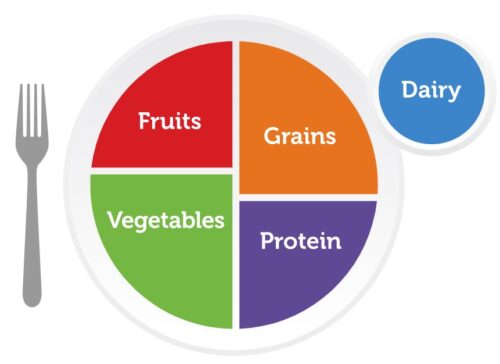Blitz News Digest
Stay updated with the latest trends and insights.
Flex Those Forks: Eating Right for Strength Gains
Unlock your strength potential with the ultimate guide to nutrition! Discover delicious tips for fueling your gains and transforming your workouts.
Top 10 Nutrient-Dense Foods for Building Strength
When it comes to building strength, choosing the right foods is crucial. Nutrient-dense foods provide the essential vitamins, minerals, and macronutrients that support muscle growth and recovery. Here, we explore the top 10 nutrient-dense foods that can help you enhance your strength training regimen:
- Eggs - Packed with high-quality protein and healthy fats, eggs also contain essential vitamins like B12 and choline.
- Quinoa - This complete protein source is high in fiber and delivers important amino acids necessary for muscle repair.
- Spinach - A powerhouse of iron and antioxidants, spinach boosts strength and helps in muscle function.
- Salmon - Rich in omega-3 fatty acids and protein, salmon promotes muscle recovery and reduces inflammation.
- Blueberries - These tiny fruits are loaded with antioxidants that may enhance muscle recovery and performance.
- Greek Yogurt - Thicker and creamier than regular yogurt, it's a great source of protein and probiotics.
- Lentils - High in protein and fiber, lentils are excellent for supporting muscle health and boosting energy levels.
- Chicken Breast - A staple for strength trainers, chicken breast is lean and protein-rich, aiding in muscle building.
- Nuts - Packed with healthy fats and protein, nuts are great snacks that support muscle maintenance.
- Sweet Potatoes - A wonderful source of complex carbohydrates, providing sustained energy and essential vitamins for overall health.

How to Meal Prep for Optimal Strength Gains
Meal prepping is an essential strategy for anyone looking to maximize their strength gains. By planning and preparing your meals in advance, you ensure that you have access to nutrient-dense foods that support muscle recovery and growth. Start by assessing your caloric and macronutrient needs based on your training regimen, and then create a weekly meal plan that includes a balanced mix of proteins, carbohydrates, and healthy fats. You can simplify the process by investing in quality containers and setting aside a few hours each week to cook and portion your meals.
To get the most out of your meal prep, focus on meal variety while keeping your prep simple. For instance, use a base of lean proteins like chicken, turkey, or tofu, and pair them with complex carbs such as brown rice, quinoa, or sweet potatoes. Incorporate a variety of vegetables for essential vitamins and minerals. Additionally, consider creating batch recipes such as stir-fries or casseroles that can be easily reheated. Don't forget to include healthy snacks like nuts or protein bars to keep your energy levels stable between workouts, ultimately leading you to greater strength gains.
Is Protein Timing Crucial for Muscle Growth?
The debate over protein timing and its role in muscle growth has garnered significant attention in the fitness community. Research suggests that consuming protein at specific times can enhance muscle protein synthesis, especially when paired with resistance training. This process involves a series of biochemical reactions that help repair and build muscle fibers after workouts. Many experts recommend prioritizing protein intake post-workout, within a window of about 30 to 60 minutes, when the muscles are most receptive to nutrients.
While protein timing may not be the sole factor affecting muscle growth, it can still play a vital role in achieving optimal results. For instance, distributing protein intake evenly throughout the day, rather than consuming large amounts in one meal, is advised. A common approach is to aim for 20-30 grams of protein per meal, focusing on a combination of high-quality protein sources such as meats, dairy, and legumes. Ultimately, while the timing of protein consumption may influence muscle gains, it should be viewed as part of a broader strategy that includes overall nutrition and training consistency.